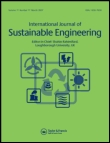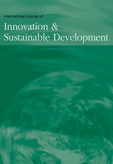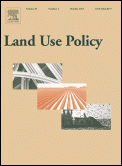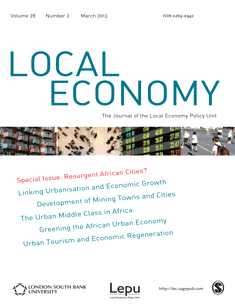
RISUS-Journal on Innovation and Sustainability
Scope & Guideline
Fostering Sustainable Solutions Through Innovative Research
Introduction
Aims and Scopes
- Innovation Systems and Economic Development:
The journal emphasizes research on national and regional innovation systems, exploring their efficiency and impact on economic growth, particularly in developing contexts. - Sustainability Practices and Frameworks:
It covers sustainable practices across various sectors, including waste management, urban development, and corporate social responsibility, highlighting frameworks that promote environmental stewardship. - Socio-environmental Analysis:
The journal focuses on socio-environmental assessments, including the impacts of urban planning on communities and ecosystems, aiming to inform policies that balance development with ecological health. - Technological Advancements for Sustainability:
Research on the application of emerging technologies, such as AI and blockchain, in enhancing sustainability practices across industries is a core area of interest. - Collaborative Decision-Making:
It studies the role of collaboration and participatory approaches in decision-making processes within organizations and communities, emphasizing their impact on innovation and sustainability outcomes.
Trending and Emerging
- Circular Economy Initiatives:
Research on circular economy practices, particularly in waste management and resource efficiency, is gaining traction as organizations seek sustainable alternatives to linear consumption models. - Impact of Artificial Intelligence:
There is a growing focus on the implications of artificial intelligence across various sectors, especially in enhancing decision-making and operational efficiency in sustainable practices. - Social Innovation and Entrepreneurship:
The journal is increasingly publishing studies on social innovation and entrepreneurship, exploring how these approaches can address social and environmental challenges while promoting economic development. - Resilience and Adaptation Strategies:
Emerging themes around resilience in urban planning and community development are gaining attention, especially in the context of climate change and its socio-economic impacts. - Data-Driven Decision Making:
The rise of big data and analytics in decision-making processes, particularly in sustainability assessments and innovation strategies, reflects a significant trend in recent research.
Declining or Waning
- Traditional Business Models:
There has been a noticeable decrease in research centered solely on traditional business models, as the journal increasingly emphasizes innovative and sustainable practices that challenge conventional frameworks. - Static Environmental Policies:
Research focused on static environmental policies appears to be waning, with a shift towards dynamic, adaptive policies that respond to evolving sustainability challenges. - General Corporate Social Responsibility (CSR):
While CSR remains important, the journal has shifted towards more specific studies on the impact of CSR practices in relation to innovation and sustainability, leading to a decline in broader CSR discussions. - Economic Growth Without Sustainability Focus:
Papers that discuss economic growth without integrating sustainability considerations are declining, as the journal increasingly prioritizes research that aligns economic development with sustainable practices.
Similar Journals

Development Southern Africa
Advancing Knowledge for Sustainable ProgressDevelopment Southern Africa is a leading scholarly journal that serves as a critical platform for research in the fields of development and geography, providing a comprehensive examination of the socio-economic and environmental challenges faced across Southern Africa. Published by ROUTLEDGE JOURNALS, TAYLOR & FRANCIS LTD, the journal boasts an impressive Q2 ranking in both Development and Geography, Planning and Development categories as of 2023, showcasing its influence and relevance in the academic community. With its extensive coverage since 1984, Development Southern Africa offers insights into diverse issues such as poverty alleviation, sustainable development, and urban planning. It ranks in the top 25% of journals in its field according to Scopus metrics, underscoring its impact among peers. Although not an open access journal, it remains an invaluable resource for researchers, professionals, and students aiming to understand and contribute to the dynamic landscape of development in Southern Africa. For submission and detailed information, researchers can find resources on the publisher's website.

International Journal of Sustainable Engineering
Advancing sustainability through innovative engineering solutions.Welcome to the International Journal of Sustainable Engineering, an esteemed publication within the field of engineering, dedicated to advancing the principles of sustainability in design and technology. Published by Taylor & Francis Ltd, this Open Access journal, available since 2022, provides a platform for high-quality research that addresses the challenges of sustainable engineering across diverse sectors. Based in the United Kingdom, the journal enjoys a distinguished reputation, reflected in its impressive Q1 status in the Engineering (miscellaneous) category and a notable Scopus rank of #35 out of 307, placing it in the top 88th percentile of its field. With a timeline of publications from 2008 to 2024, the International Journal of Sustainable Engineering serves as a vital resource for researchers, professionals, and students seeking to engage with innovative solutions that promote sustainability in engineering practices. We invite you to contribute to this critical discourse and explore the wealth of knowledge presented in our journal.

International Journal of Innovation and Sustainable Development
Uniting Research for a Greener TomorrowThe International Journal of Innovation and Sustainable Development, published by INDERSCIENCE ENTERPRISES LTD, is a pivotal platform for researchers, professionals, and students interested in areas such as management of technology and innovation, as well as renewable energy and sustainability. Since its inception in 2005, this journal has aimed to disseminate high-quality research that addresses the urgent challenges of innovation in the context of sustainability. Located in the United Kingdom with an outreach extending to a global audience, the journal features a diverse range of articles aimed at fostering interdisciplinary collaboration. With an increasing importance in today’s rapidly evolving societal and environmental landscape, this journal provides essential insights and advancements in its fields of study, which are crucial for informed decision-making and policy formulation. Although currently placed in the lower quartiles of its categories, the journal still plays an essential role in nurturing new ideas and facilitating discussions that can lead to impactful advancements in innovation and sustainability.

European Journal of Sustainable Development
Empowering scholars to shape a greener future.European Journal of Sustainable Development, published by the European Center for Sustainable Development, serves as a vital platform for disseminating research in the interdisciplinary field of sustainability. With an ISSN of 2239-5938 and an E-ISSN of 2239-6101, the journal emphasizes the importance of advancing knowledge in areas such as environmental management, sustainable development policies, and socio-economic impacts on ecological resilience. Despite its recent discontinuation in Scopus, the journal has provided valuable insights within a broad scope of categories, including Geography, Planning, Development, and Environmental Sciences. Its current rankings reflect a challenging academic landscape but also signal the journal's potential for growth and impact within these disciplines. Although not an open-access publication, the European Journal of Sustainable Development encourages researchers and scholars to contribute and engage with pressing issues of sustainability, making it an essential resource for those dedicated to fostering a more sustainable future.

Frontiers in Sustainable Cities
Exploring Sustainable Solutions for Urban ChallengesFrontiers in Sustainable Cities, published by FRONTIERS MEDIA SA, is an esteemed academic journal dedicated to advancing the fields of Urban Studies, Renewable Energy, and Public Administration. With a commitment to open access since 2019, the journal facilitates the dissemination of high-quality research aimed at creating sustainable urban environments. Operating from Lausanne, Switzerland, this influential publication supports knowledge exchange among researchers, professionals, and students involved in the complex dynamics of urban sustainability. The journal has achieved notable recognition, reflected in its quartile rankings—Q1 in Urban Studies and Q2 in both Public Administration and Renewable Energy, Sustainability and the Environment—indicating its relevance and impact within the scholarly community. Researchers benefit from a broad reach through its open access policy, enhancing visibility and accessibility of important findings that contribute to the development of sustainable cities globally.

Planlama-Planning
Transforming Challenges into Planning SolutionsPlanlama-Planning is a distinguished journal published by KARE PUBL, dedicated to the evolving field of urban and regional planning. With its ISSN 1300-7319, it provides a platform for researchers, practitioners, and students to share innovative research and comprehensive reviews on critical planning issues and methodologies. Situated in Istanbul, Turkiye, the journal aims to facilitate discussions that address contemporary challenges in planning and promote sustainable development. Although currently not an open-access journal, it upholds rigorous peer-review standards to ensure high-quality publications. With a commitment to advancing knowledge and fostering collaboration across disciplines, Planlama-Planning stands as a crucial resource for those engaged in shaping cities and communities worldwide.

LAND USE POLICY
Shaping the Future of Sustainable Land ManagementLAND USE POLICY, published by ELSEVIER SCI LTD, is a premier academic journal dedicated to advancing the study of land use issues and policies, with a particular focus on sustainable management and conservation practices. Since its inception in 1984, this journal has established itself as an influential platform in the fields of Forestry, Geography, Planning and Development, and Environmental Science, consistently achieving a Q1 category ranking across various disciplines. With an impressive impact factor and recognition as a top-tier source (e.g., ranking #18/821 in Geography and Planning), it serves as a critical resource for researchers, practitioners, and policy-makers looking to address complex land use challenges. Although it does not offer open access, the journal's articles are widely accessible through institutional subscriptions, enhancing its reach. Researchers and students can find valuable insights into innovative policies and methodologies that promote sustainable land management, making LAND USE POLICY essential reading for anyone engaged in environmental studies and policy development.

Resources Environment and Sustainability
Pioneering Research for a Greener TomorrowResources Environment and Sustainability is a premier academic journal published by ELSEVIER, dedicated to advancing knowledge in the fields of environmental science, engineering, and sustainability practices. Recognized for its rigorous peer-review and high-quality research, the journal boasts an impressive impact factor and consistently ranks in the first quartile across multiple categories, including Environmental Engineering, Environmental Science, Management, Monitoring, Policy and Law, and Pollution. With its Scopus rankings placing it among the top journals—#7 in Environmental Science and #12 in Environmental Engineering—this journal provides a vital platform for researchers, professionals, and students seeking to contribute to evolving policies, innovative management strategies, and cutting-edge environmental solutions. Hosted in the Netherlands, Resources Environment and Sustainability is committed to fostering interdisciplinary dialogue and disseminating high-impact research that addresses the pressing challenges of our times. This journal embraces open access principles, ensuring that the wealth of knowledge it publishes remains accessible to a global audience.

disP
Shaping Tomorrow's Geographical StrategiesdisP is a premier journal dedicated to the interdisciplinary field of geographical planning and development, published by Routledge Journals, Taylor & Francis Ltd. With a focus spanning from 1980 to 2024, this esteemed publication serves as a crucial platform for sharing innovative research and insights that address pressing spatial challenges and planning methodologies. The journal is recognized for its significant contribution to academia, currently positioned in the Q2 category within Geography, Planning and Development according to the 2023 rankings. It occupies a noteworthy rank of #423 out of 821 in the Scopus database, placing it in the 48th percentile for social sciences within its category. Although it does not offer open access, disP remains an essential source for scholars, practitioners, and policymakers seeking to deepen their understanding of complex development issues and spatial strategies. Its commitment to excellence in research ensures that disP continues to be an influential voice in shaping the future of geographical planning and development.

Local Economy
Transforming Local Economies with Scholarly ExcellenceLocal Economy is a prestigious academic journal published by SAGE Publications Ltd, specializing in the dynamic field of local economic development. With an ISSN of 0269-0942 and an E-ISSN of 1470-9325, this journal has established itself as a leading source of interdisciplinary research from 1986 to 2024. Based in the United Kingdom, the journal boasts a remarkable Q1 ranking in the category of Economics, Econometrics, and Finance, reflecting its significant impact and influence in the field. Researchers and practitioners alike value Local Economy for its rigorous peer-reviewed studies that address key issues related to local economic policies, practices, and community resilience. With a Scopus rank of 72 out of 288, positioning it in the top 75th percentile, this journal is essential reading for those seeking to deepen their understanding of economic development at the local level. The absence of open access reinforces its commitment to quality scholarship, making the journal a reputable platform for disseminating important research findings and engaging discussions.